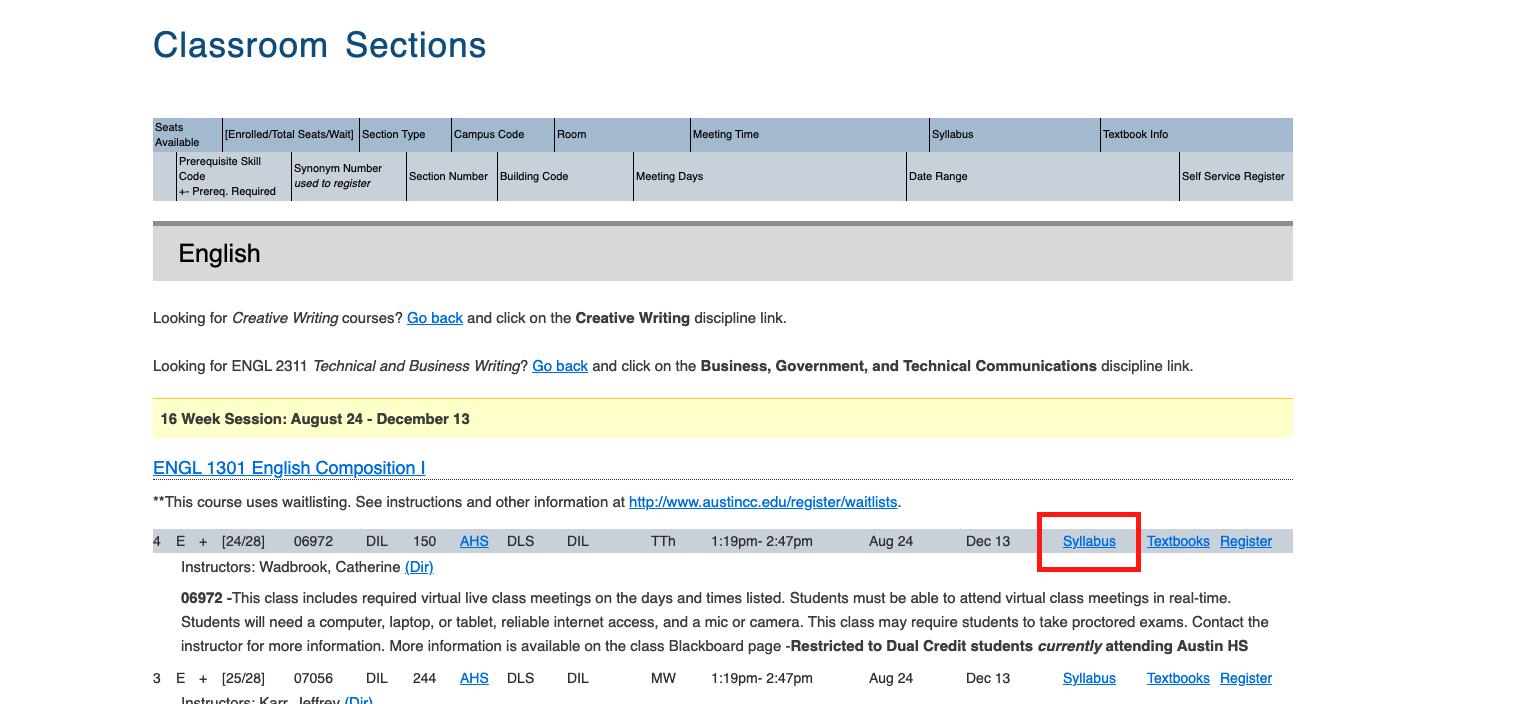5
Teaching Approaches
Recommendations on teaching CoRequisite models:
- Establish a detailed course schedule at the beginning of the semester (with assigned readings, due dates, etc.) and ensure students can find the information in multiple places (i.e. Blackboard calendar); encourage them to put these deadlines into their own calendars/reminder apps
- When assigning required readings, link these to an assessment to ensure students complete them (quiz, reader’s journal, discussion, etc.)
- Consider incorporating “active learning” strategies in course content delivery (think-pair-share, jigsaw, silent Socratic dialogue, etc.)
- Consider setting up a “text alert” system that students and instructors can use to communicate important course information with each other (i.e. Remind, Slack, Discord, etc.)
- Require multiple drafts of major/high stakes assignments (essays, writing projects)
- Consider discussing and including information for additional student support services in syllabus/on Blackboard (i.e., learning lab, academic success coaching, food pantry, free subscriptions)
- When students fail to turn in assignments, or are failing generally, always communicate this to your CoReq partner (if you are co-teaching)
Expectations of Skills and Knowledge for Exiting Composition I Students
Below are the skills and knowledge we [the Spring 2012 assessment committee] expect students to master upon exiting Composition I:
Reading
- Summarize a text
- Identify rhetorical purposes and methods of organization in a text
- Analyze, interpret, and evaluate a variety of texts by identifying the author’s main purpose/argument (thesis), audience, and context
Content Development
- Produce clear, correct, and coherent prose adapted to purpose, occasion, and audience
- Write competently in the informative, analytical, and persuasive modes
- Research and write a documented paper
- Apply basic principles of critical thinking in the development of exposition and argument
- Complete an essay using the writing process, including invention, organization, drafting, revision, editing, and presentation
- Read a question or prompt and form a coherent written response that includes a thesis, supporting details, and primary and secondary sources
Organization
- Craft a well-defined thesis, strong topic sentences, and smooth transitions
- Write clearly defined introduction, body, and conclusion paragraphs that are logically connected
Grammar/Mechanics
- Spell words correctly
- Demonstrate correct use of punctuation, which may include commas, end-punctuation, semicolons, colons, dashes, apostrophes, and quotation marks
- Write sentences with correct subject-verb agreement and pronoun use
- Write complete sentences without fragments, run-ons (fused), and comma splices
- Demonstrate word choice that is college-level, appropriate, and varied
- Use varied sentence patterns
Incorporating Source Material
- Collect, read, analyze, and use information from a wide range of sources, including library databases, journal articles, books, and/or primary source documents as appropriate
- Choose sources that provide reasonable and appropriate evidence to support the thesis of the paper; that come from responsible, credible authors; and that are timely as appropriate to the topic
- Use direct quotation, summary and/or paraphrase in a logical presentation
- Use signal phrases to transition to and/or introduce source material
- Embed sources in analytical statements or pair them effectively with analytical statements to support the thesis
- Use in-text citations with each summary, paraphrase, or direct quotation
- Format in-text citations and Works Cited according to the current MLA guidelines
Master Syllabi
You will need to be logged into your @austincc.edu email account to access the following resources; if you have trouble accessing anything, you can contact Allegra Villarreal: virginia.villarreal@austincc.edu
- English/Journalism Department Handbook
- Master Syllabus Template
- Master Syllabus: ENGL 1301 (General)**
- Master Syllabus: ENGL 1301 (COVID-19 Semesters)**
**Syllabus changes occur each year; it is important that all instructors have the most up-to-date master syllabus for 1301. If you are unsure, you can check with Sue Bloodsworth: sbloodsw@austincc.edu
Syllabus Checklist
Section Information
-
- Course Name/Number
- Section Number/Synonym
- Campus/Room
- Course Days/Times
Instructor Information
-
- Name
- Office Location(s)
- Office Hours
- Office Phone Number
- ACC Email Address
- Other Contact Info, if applicable
Required Texts
-
- Texts/Books
- Materials/Software
Course Description
-
- Credits & Contact Hours
- Catalog Description
- Course Rationale
- Prerequisites
Learning Outcomes
-
- Course Learning Outcomes (CLOs)
- Program Learning Outcomes (PLOs)
- General Education Competencies
- SCANS (if Workforce)
Additional Course Info
-
- Instructional Methodology
- Distance Education Info (for online/hybrid sections)
- Grading System
- Course Outline & Calendar
Course Policies
-
- Attendance
- Withdrawals
- Missed Exams & Late Work
- Incompletes
College Policies
-
- Academic Integrity
- Student Rights and Responsibilities
- Student Complaints
- Statement on Privacy
- Safety Statement
- Campus Carry
- Discrimination Prohibited
- Use of ACC E-mail
- Use of Testing Center
- Student Support Services
- Student Accessibility services
- Academic Support
- Library Services
- Student Organizations
- Personal Support
Sample Syllabus
Here is a sample syllabus from Fall 2020 (with additional sections on COVID-19 protocols and distance learning). Additional syllabi can be found in the ACC Directory by instructor and in the Course Schedule by section:

